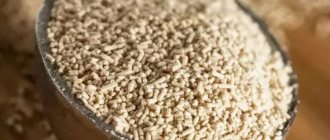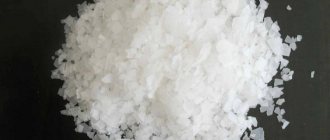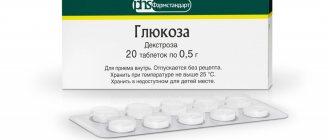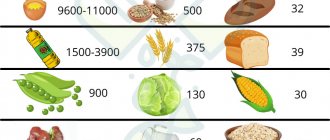Why do people resort to dietary supplements?
Historically, people have always used herbal medicines to treat diseases and viruses, relieve fevers and heal wounds. Natural remedies can relieve pain, improve digestion, and act as relaxants or stimulants. Having studied some plants, scientists came to the conclusion that sometimes their effectiveness is no worse than that of medications, but usually you don’t have to worry about possible side effects. This was the reason for the creation of pharmacological products called dietary supplements. But what is it really? What is hidden behind the famous abbreviation dietary supplement? And are these substances as harmless as is commonly believed?
What are dietary supplements
According to the Federal Law of 02.01.2000 N 29-FZ “On the quality and safety of food products”, biologically active food additives (BAA) are food products of natural origin (or identical to natural ones), which can provide “general strengthening, mild diuretic, tonic , calming and other types of action for various functional conditions, to reduce the risk of diseases, as well as to normalize the microflora of the gastrointestinal tract.” Dietary supplements are not medications. The benefits and harms of many dietary supplements have been studied by the US National Center for Health Statistics, and consumption of dietary supplements has been shown to correct micronutrient deficiencies. Each type of drug has certain pharmacological properties and affects human systems and organs. You can find a complete list of drugs registered in Russia in the register on the website of the Ministry of Health, and information about dietary supplements on the website of Rospotrebnadzor.
Dietary supplement, what's in your capsule?
Content:
- Why do people resort to dietary supplements?
- Dietary supplement, what's in your capsule?
- Types of dietary supplements
- What should you remember when taking dietary supplements?
- What are the benefits of dietary supplements?
- How do dietary supplements differ from medications?
- When to think about supplements
- Deficiency and excess of bioactive substances
- Efficiency of biosubstances
- The most popular components of dietary supplements
The raw materials for most of these drugs are extracts from a wide variety of organic and inorganic substances. But let us immediately note that this, at least, should be the case ideally. But since dietary supplements are not included in the list of substances whose quality is strictly controlled by law, the composition of most of them is solely at the discretion of the manufacturers. In this article we will talk about dietary supplements, so to speak, the right ones, manufactured in compliance with technology and exclusively from substances beneficial to humans.
The components of biologically active drugs can be a variety of substances. Depending on the function assigned to the dietary supplement, it may contain different types of lipids, proteins and carbohydrates, vitamins and minerals, enzymes, fiber, bee products and plant extracts. They can play the role of probiotics and other substances beneficial to humans.
Types of dietary supplements
All biologically active additives are usually divided into 2 groups: nutraceuticals and parapharmaceuticals, or bioregulators. The first are drugs that restore the deficiency of certain substances in the body. Taking these dietary supplements is justified for people whose diet is far from balanced. Substances from the second group affect the functioning of organs and systems. As a rule, they are taken for prevention or as an adjuvant in parallel with traditional therapy. Although manufacturers often combine the properties of both types in one preparation.
About dietary supplements in detail
Dietary supplements (BAS) or, as they are now called, vitamin-mineral complexes (VMCs) first came to Kazakhstan along with perestroika in the 90s. Over the 30 years of existence on the market, they have managed to gather around themselves diametrically opposed points of view and become “overgrown” with myths. We are sure that you also have a couple of these in your piggy bank. How was their story? Are they so harmless and useful? How are things going with dietary supplements in other countries? Read our material.
“We remember how it all began”
The official websites of the world's most famous dietary supplement manufacturers indicate that their first representative offices in Kazakhstan were opened in the 2000s. But that's not true. The first illegal distributors appeared in our country already in the 1990s. Sales were based on the principles of network marketing, and often buyers were not even offered to familiarize themselves with the company’s official catalog, not to mention instructions for use. As a rule, the “new miracle cure” was sold to acquaintances, and then spread through word of mouth. The authority of a trusted acquaintance did its job - people willingly bought the product, taking their word for it. This freed the hands of unfortunate distributors who, in pursuit of profit, talked about miraculous cases of cures for cancer, AIDS, allergies, Alzheimer's, pneumonia and even (!) spoilage with dietary supplements. All this bore the heavy imprint of the collapse of the Soviet Union - some wanted to make money, others diligently tried to gain at least some confidence in the future. Thus, having “rolled” in the first wave among people who were then receptive to everything new, dietary supplements entered the 2000s, winning financially, but losing reputationally - time passed, and the long-awaited cure for all diseases did not come. The trust of many consumers has been lost. This is how we gradually came to the first and, perhaps, the most “ancient” myth about dietary supplements:
Dietary supplements ≠ medications
The origin of medicines is synthetic. Their chemical structure has a clear formula aimed at eliminating specific problems in organs and systems. In turn, dietary supplements are natural and are of plant, animal or mineral origin. Their task is to comprehensively optimize the functioning of internal organs and body systems within physiological norms. In other words, biological supplements can only compensate for the deficiency of nutrients in the body, but cannot cure any disease. The World Health Organization has a clear position in this regard: “Medicines for the sick, dietary supplements for the healthy.” Despite this, dietary supplements can serve as a good “ally” in the fight against many diseases, replenishing the lack of vitamins and minerals in a weakened body. They are also often prescribed in combination with potent drugs to mitigate their side effects. It is worth noting here that IUDs themselves are by no means harmless, which, by the way, is also a common misconception, which means:
Each dietary supplement has instructions
Depending on the composition, dosage and country of production, any vitamin “cocktail” can turn into an enemy intervention for the body. Thus, along with individually intolerable components, dietary supplements may contain extracts of exotic herbs and plants that are not typical for the consumer’s area of residence. Therefore, allergy sufferers, pregnant women, breastfeeding women and people with chronic diseases should be especially careful. Any imbalance in the intake of vitamin-mineral complexes can seriously affect the functioning of even an absolutely healthy body. To avoid problems, dietary supplements must be prescribed by the attending physician, regardless of whether they are prescribed as maintenance therapy or as an element of a treatment program. All over the world, this approach is recognized as the most correct and effective - the optimal dosage of bioregulators should be selected individually based on a person’s characteristics (gender, weight, age, predisposition to diseases) and the results of his biochemical blood test.
A properly selected dietary supplement can significantly improve not only the quality, but also the life expectancy. Japan, the world leader in the number of centenarians, has proven this perfectly by its example. But it was not always so. After the bombing of Hiroshima and Nagasaki, the average life expectancy of the Japanese was 54 years. Thanks to the government's "Nation Rescue Program", this figure was raised to 84 years. One of the mandatory points of this program was the optimization of the population's nutrition using seafood and dietary supplements. Another conclusion can be drawn from this revealing story:
Proper nutrition alone is not enough
Especially considering the current realities. Of course, unlike Japan in the 1960s, the environmental situation in Kazakhstan is better. But almost every region of the country has its own problems - air and water pollution, shallowing, desertification, melting glaciers, etc. All these external factors of negative impact on the body could be compensated for by a balanced diet, proper daily routine and an active lifestyle. And if the issue with physical activity can be solved by the same 30-minute runs in the park, then not every person can balance their diet in terms of the composition of nutrients. So, to maintain proper functioning of the body, you need to consume at least 3-4 servings of vegetables and fruits per day, eat fish and meat 2-3 times a week, not to mention nuts, herbs, etc. Not every resident of our country can afford such a diet, and we also cannot vouch for the naturalness and quality of the products. Therefore, now the services of dietitians and nutritionists are becoming increasingly in demand, and dietary supplements occupy far from the last place in their work.
Here's what endocrinologist, nutritionist-nutritionist, Dr. Birzhanova Ainagul Nurlanovna says about this:
“Recently, Kazakhstanis have experienced a “thaw” in their attitude towards bioregulators. People began to react to them more calmly, and their correct perception gradually appears. It happens that they make an appointment precisely in order to choose the right supplement. But most often, of course, they treat thyroid problems and excess weight. Among patients of this profile, you can still meet those who believe in stories about miraculous weight loss using dietary supplements in 5 days. It’s not surprising, because the Internet is now literally “teeming” with advertisements with “before” and “after” photographs, including of celebrities. Of course, people want the same thing – quickly and efficiently. But that doesn't happen. Any process of losing weight, as well as the process of recovery, is daily discipline and work. The maximum that dietary supplements can help in this matter is to “accelerate” the internal metabolism. The situation is aggravated by the fact that there are no strict mechanisms for regulating their sales. People can buy any dietary supplement they want in a specialty store, pharmacy, or through network distributors. In this case, no one bears responsibility for the result or possible side effects. Therefore, I am in favor of dietary supplements being taken under the supervision of a doctor and only based on test results. A personally selected bioregulator in combination with the correct diet, sleep and physical activity can qualitatively improve the life of any person.”
Whatever the attitude towards dietary supplements, they have already managed to occupy their niche in the human diet. Statistics indicate that the world leader in supplement consumption is Japan (90% of the country's population), followed by the USA (80%) and Europe (65%). These same countries are among the top three in terms of life expectancy and quality of life. Of course, this is not the merit of dietary supplements alone, but they have been an integral part of their healthcare systems for decades, the standards of which the whole world is used to being equal to. This means that vitamin-mineral complexes have a place in our future, and the following three tips will help you navigate it correctly:
- When deciding on choosing a dietary supplement, it is better to first get tested and consult a doctor;
- Make sure that the dietary supplement has passed state registration and is approved for use. This can be done on the website of the Committee for Quality Control and Safety of Goods and Services of the Ministry of Health of the Republic of Kazakhstan, as well as through the unified register in the section “Register of certificates of state registration of products (goods) of the Republic of Kazakhstan”;
- Carefully study the instructions for use, the composition of the product and its side effects.
The International Medical Center On Clinic began its history of acquaintance with bioregulators 17 years ago. Then we decided that we would treat diseases, not their symptoms. With the support of the Institute of Bioregulation and Gerontology of St. Petersburg, we were able to introduce a system that allows us to prevent diseases even before they appear. Since then, the clinic has adopted an integrated approach to treatment, in which bioregulators perform not only preventive, but also restorative functions. This approach allows us to successfully cope even with chronic forms of diseases in 90% of cases.
What are the benefits of dietary supplements?
Bioactive supplements are not medications, so the principles of taking them are also different.
Meanwhile, they can be useful for the prevention of certain diseases. They are often taken as a means to strengthen the immune system or as an additional source of vitamins. Dietary supplements made from natural ingredients can be an effective addition to the complex treatment of chronic diseases.
In addition, bioactive additives are capable of:
- regulate the metabolism of nutrients;
- promote hematopoiesis and proper blood clotting;
- play the role of an antioxidant;
- some have properties similar to hormones;
- influence enzymatic processes;
- influence cellular respiration;
- activate the reproductive abilities of the body;
- promote the formation of connective tissue;
- remove toxins;
- strengthen the heart and blood vessels;
- strengthen immunity;
- maintain electrolyte balance;
- promote stability of acid-base balance;
- beneficial effect on intestinal microflora.
How do dietary supplements differ from medications?
The first and most important difference between bioactive additives and drugs is the composition of both drugs: the raw materials for bioactive additives, as a rule, are natural substances.
Secondly, both drugs differ in their operating principles: dietary supplements give a milder effect and, as a rule, do not have side effects. In addition, they do not accumulate in the body and do not have a toxic effect. Considering these nuances, it becomes clear why the body more easily tolerates the effects of dietary supplements than traditional medicines.
What are the food additives?
To date, no unified classification of dietary supplements has been developed. Most often they are divided according to composition, functional activity, effects and other criteria. The most important dietary supplements for humans are: Vitamins are organic compounds needed in very small quantities. The body cannot synthesize them on its own, so it must be absorbed from food. If there is a deficiency of any vitamins, the normal functioning of the body is disrupted. The need for vitamins depends on the characteristics of the region of residence and the condition of a particular organism. A person needs all 13 vitamins known today. You can make up for the deficiency with the help of special supplements - these can be either single preparations or vitamin complexes. For example, the NUTRILITE™ DOUBLE X™ 31-day complex of vitamins, minerals and phytonutrients maintains optimal nutrient levels and benefits 24 vegetables, plants and fruits.
Minerals are chemical elements vital to all body systems. A person receives them with water and food. The most necessary for the body are potassium, sodium, calcium, phosphorus, magnesium, iron and iodine. Basic complex NUTRILITE™ Daily 60 tab. helps replenish 93% of the daily requirement for iodine (for comparison, 100 g of pink salmon contains only 33% of the daily requirement). Essential fatty acids are complex compounds of glycerol and fatty acids. The human body is not able to synthesize them on its own; they are absorbed only with food. NUTRILITE™ Omega-3 Complex provides the body with an optimal amount of Omega-3, which supports the functioning of the cardiovascular system and helps preserve youth.
Health supplements can also be classified according to the purpose of their use. Balanced complexes of substances can solve various problems: there are drugs to protect the heart and blood vessels, for the digestive system and liver, to support the immune system and many others. Sports nutrition stands apart . These are dietary supplements, the purpose of which is to compensate for the deficiency of vitamins, minerals and nutrients that occur during intense physical activity. Sports nutrition can be designed to improve exercise performance, achieve optimal body weight, build muscle mass, reduce body fat percentage, etc. To replenish energy after exercise, the Amway line includes non-alcoholic tonic drinks XS™ Power Drink - sugar-free, with a minimum of calories and containing natural juice.
Recommended Products
NUTRILITE™ Daily, 60 tab.
More details
NUTRILITE™ DOUBLE X™ with vitamins, minerals and phytonutrients, 186 tabs.
More details
NUTRILITE™ Omega-3 complex, 90 caps.
More details
When to think about supplements
Despite the fact that there is no clear opinion in the world about the effectiveness of biological products, in some cases, even doctors recommend that patients take a course of capsules on a natural basis.
As a rule, these substances are used when it is necessary to restore the vitamin-mineral balance or saturate the sick body with certain nutrients. Also, high-quality dietary supplements are effective for strengthening the immune system, accelerating metabolism, normalizing intestinal microflora, and as a substance that cleanses the body of toxins and poisons. Recently, dietary supplements for weight loss and regulation of metabolic processes in the body have become especially popular. It is also worth noting that the composition of many dietary supplements is a cocktail of extremely beneficial substances for humans, playing the role of powerful antioxidants.
Given such a wide functional range of dietary supplements, almost everyone and at any age can take them. The main thing is to choose the right dietary supplement.
It is also worth taking dietary supplements:
- pregnant women;
- children during intensive growth;
- for problems with the musculoskeletal system;
- for diseases of internal organs;
- during periods of increased emotional stress;
- in old age.
The benefits of dietary supplements for the body
Dietary supplements can have a significant effect on individual functions of the body and its condition as a whole. For example, calcium and vitamin D are important for maintaining bone strength. Doctors recommend that pregnant women take folic acid to prevent developmental defects in the embryo that can cause it to become unviable, such as spina bifida, anencephaly, and heart defects. Before taking any vitamin complex, you should consult your doctor.
Deficiency and excess of bioactive substances
Perhaps many people are interested in the benefits and harms of dietary supplements. But even with this information, sometimes you can harm the body if you take drugs in the wrong dosage.
Thus, an excess of dietary supplements, as a rule, resembles ordinary poisoning. Nausea, vomiting, weakness, changes in body temperature, dizziness and even hallucinations. All this can occur against the background of excessive consumption of biological substances. In addition, it is possible to develop hypervitaminosis and excessive accumulation of other nutrients included in the supplement.
But the fact that the body lacks useful elements may be indicated by weakness, fatigue, dizziness, vitamin deficiency, problems with skin, hair, nails, spots in the eyes and other signs.
Dietary supplements and diet
The set of vitamins and microelements necessary for normal human life is quite extensive. The main source of these substances is food. Dietary supplements are designed to optimize the amount of nutrients entering the body, but they do not replace a balanced diet. Eating the right foods can reduce your risk of disease, according to research from the U.S. Department of Health and Human Services and scientists from the Human Nutrition Research Center. However, the required element is not always contained in products in the required volume, so it is necessary to compensate for the deficiency of substances with the help of balanced complexes of vitamins and minerals.
Efficiency of biosubstances
Bioactive supplements are very specific drugs. And in order to feel their effectiveness, 1-2 tablets taken from time to time are not enough. There are quite a lot of recommendations on how to make dietary supplements as effective and beneficial for humans as possible.
Firstly, most dietary supplements are not a miracle pill for a specific ailment. They have a comprehensive effect on the body, strengthening, if not all organs and systems, then at least functionally similar ones. But, at the same time, among the drugs offered, you can choose a supplement that is most suitable for a person at a certain stage of treatment or prevention. For example, after taking antibiotics, it’s a good idea to drink a dietary supplement that acts on the body like a probiotic. Or, after treatment with drugs whose side effects affect the liver or kidneys, you can take a biocourse with a cleansing effect.
As for dosages, for most biological products they are not strictly defined and vary depending on the needs (therapeutic effect or prevention). But still, you need to start taking an unfamiliar substance with small dosages, gradually increasing the daily norms.
In some cases, the timing of taking the drug matters, and to enhance its effectiveness, it is worth following certain recommendations. For example, most dietary supplements are recommended to be taken with meals. If this is a tonic drug, then it should be taken in the first half of the day. If it is a calcium supplement, then you should drink it before or after meals, maintaining a minimum 30-minute pause. It is important to store packages of tablets or capsules in a dark, dry place or even in the refrigerator in order to preserve the biological activity of the active substance as much as possible.
The most popular components of dietary supplements
succinic acid
Bioactive supplements, which include succinic acid, affect the functioning of all cells in the body, stimulating their activity. This substance is a very strong remedy, therefore, in order to avoid an overdose, it is important to take a break from taking medications containing succinic acid.
Garlic
Preparations with garlic extract are useful for headaches and arthritis, as well as for cleansing blood vessels. Typically, dietary supplements containing garlic are oil capsules.
Seaweed
The most common component of bioactive additives is seaweed - kelp.
This brown-red sea plant is a rich source of iodine. Laminaria is important for the effective functioning of the thyroid gland and strengthening the immune system. This is an effective remedy for combating purulent inflammation. In addition, it is a source of other equally important components for health: magnesium, iron, zinc, cobalt, nickel, lithium. Together, they all have a positive effect on the functioning of the adrenal glands, genital organs, pancreas and other organs of the endocrine system. When choosing a dietary supplement based on kelp, it is important to know that this algae does not have the best effect on the body in case of kidney disease or blood clotting disorders.
Spirulina seaweed as a dietary supplement is important for cleansing the intestines, and is also an excellent source of protein (contains 20 times more protein than soy), which is absorbed by the body faster than proteins from animal products. In addition, it contains large reserves of iron, beta-carotene and some enzymes. This entire complex helps cleanse the liver and blood vessels.
Chlorella is also a popular component of dietary supplements. This algae is primarily used as a source of protein.
Fish fat
Dietary supplements, the main component of which is fish oil, are usually rich in polyunsaturated fatty acids. They stabilize blood pressure, strengthen blood vessels, and have a beneficial effect on the condition of the skin. Important for children's health, in particular for activating brain function and strengthening the visual organs.
Royal jelly
This substance contains amino acids essential for humans and many vitamins. Preparations based on royal jelly are used to treat the nervous system, enhance potency and strengthen the immune system. Dietary supplements of this type are used to treat anemia, exhaustion, and also to resolve adhesions. But high blood pressure and epilepsy are serious contraindications for the use of drugs containing these substances.
Pollen
This flower product can often be seen in the list of components of bioactive supplements. In particular, pollen is combined with rutin and protein. In this combination they are an excellent drug for strengthening blood vessels. Dietary supplements of this group are prescribed as prophylactics against strokes, heart attacks, and also to strengthen the eye vessels. Also effective for restoring potency and fighting infections. And for children, such drugs are useful during periods of intensive growth.
Best materials of the month
- Coronaviruses: SARS-CoV-2 (COVID-19)
- Antibiotics for the prevention and treatment of COVID-19: how effective are they?
- The most common "office" diseases
- Does vodka kill coronavirus?
- How to stay alive on our roads?
Meanwhile, it is important to consider that all bee products are strong allergens. True, pollen is one of the least dangerous.
At the dawn of his evolutionary development, man was omnivorous, consuming both plant and animal foods.
Harsh living conditions, the struggle for survival and procreation forced ancient man to consume more food of animal origin.
Naturally, the natural diet, varied in composition, fully provided the body with all the nutrients and energy necessary for life.
With the advent of civilization and the development of human society, technological methods for processing and preserving food appeared, which introduced significant changes in the qualitative and quantitative composition of the diet and influenced the formation of the biochemical status of the human body.
The diet of modern man was formed in its essence about 400 years ago and began to be formed to a greater extent by canned, highly processed food. Such “achievements” of the food industry and civilization itself have almost completely cut off the flow of vital exogenous regulators of metabolism and deprived humans of this apparently quite effective form of symbiosis with nature. In addition, in the process of evolution (for a variety of reasons), the human body has lost the ability to synthesize a number of essential nutrients, which are called essential and must necessarily be present in the diet in certain quantities and ratios.
An example is the inability of the human body to synthesize ascorbic acid, iodine, iron, some amino acids, and other macro- and micronutrients.
Considering the nutritional crisis of modern man, it should also be noted; that the set of products always had a class character (poor and rich), depended on geographical conditions of residence, religious traditions and customs, and a number of other factors.
The real revolution in nutrition began in the mid-20th century. What are the main causes of the nutrition crisis?
- Reducing energy consumption and nutritional density of the diet/
Currently, human energy consumption in most economically developed countries has reached a critical level and amounts to 2.0-2.5 kcal. This is due to the mechanization and automation of labor both in production and in everyday life. At the same time, the nutritional density of the diet, characterized by the content of nutrients per kcal unit, decreased significantly. Such a diet is not able to provide the human body with the necessary nutrients and energy.
- Overeating, overweight and obesity.
About 50% of women, 30% of men and 12% of children suffer from excess weight [19]. A direct, reliable connection has been established between obesity and such diseases of “civilization” as hypertension, myocardial infarction, diabetes mellitus, and malignant neoplasms. The problem under consideration is caused by excessive consumption of high-calorie refined foods: sugar, alcohol, flour confectionery products, white breads, etc.
- Malnutrition and hunger.
Every day, about 35 thousand people die from hunger in the world, mainly in developing countries [19]. The largest number are children.
- Poor nutrition.
It is characterized by excessive consumption of animal fats and polysaccharides against the background of insufficient animal proteins, vegetable fats, vegetables and fruits. It should be noted that the food that our ancestors consumed (meat of wild animals, wild plants) was significantly superior in its nutritional value to modern sources of raw meat and cultivated plants, especially in minor food components necessary for life processes.
The low level of caloric content of the diet and its imbalance in basic nutrients cause a deficiency of almost all vital vitamins, macro- and microelements, polyunsaturated fatty acids, and dietary fiber. The deficiency of essential nutrients is all-season and is a constantly operating harmful factor that negatively affects human health [5, 17, 28, 37]. As an example, we can cite the programs of the World Health Organization and the United Nations to overcome iodine deficiency, vitamin deficiency, iron deficiency, etc.
- Eating canned, refined, processed and stored food products.
The rapid development of technologies for processing raw materials, production and storage of food products has led to a significant decrease in the content of native nutrients in the diet of modern humans.
Strict technological processing and storage regimes deprive food of the most important biologically active substances, to the consumption of which our body has adapted for millennia.
An example is the comparative micronutrient content of refined and primary sugar (Table 2.1) or the content of essential nutrients in unpolished (brown) and white rice (Table 2.2).
Another illustrative example is the loss of vitamin C in vegetables during storage: head lettuce and green peas lose 30% of ascorbic acid in 1 day of storage, 2 days - 40, 3 days - 50, spinach on the 2nd day - 80%. Potatoes after two months of storage lose half of their original vitamin C content, after 4-6 months - 2/3.
Table 2.1 Micronutrient content in refined and primary (brown) sugar, mg/100 g
| Compound | Refined sugar | Primary sugar |
| Minerals; | ||
| calcium | 0,0 | 85,0 |
| phosphorus | 0,0 | 19,0 |
| iron | 1,0 | 3,4 |
| potassium | 3,0 | 344,0 |
| Vitamins: | ||
| IN 1 | 0,0 | 0,01 |
| B2 | 0,0 | 0,02 |
| PP | 0,0 | 0,2 |
Table 2.2 Content of essential substances in brown (unpolished) and white rice
| Composition (per 100 g of product) | Unpolished rice | White rice |
| Protein, g | 13,3 | 10,5 |
| Minerals: | ||
| calcium | 32,0 | 24,0 |
| phosphorus | 221,0 | 94,0 |
| iron | 1,6 | 0,8 |
| potassium | 214,0 | 92,0 |
| Vitamins: | ||
| 0,34 | 0,07 | |
| B2 | 0,05 | 0,03 |
| RR | 4,7 | 1,6 |
In Fig. Table 2.1 indicates the main factors leading to malnutrition [31, 37, 53]. Along with those discussed above, these include: low level of bioavailability of some nutrients supplied with food; insufficient knowledge in the field of rational nutrition; low level of culture, including nutritional culture; low purchasing power, poverty (access to the necessary “food basket”); incorrect and bad eating habits.
The nutritional problems of modern man are closely related to issues of food quality and safety*
The concept of quality implies an integral set of properties that can satisfy the necessary human needs through this product.
The priority quality indicators are the organoleptic merits of the product, nutritional value and safety.
The latter indicator is associated with the possibility of contamination of food raw materials and food products with xenobiotics of chemical and biological origin due to changes in the environmental situation, anthropogenic impact, the use of unauthorized food additives, stimulants or inhibitors in crop and livestock production, and the influence of a number of other factors [27].
Figure 2.1. Factors shaping malnutrition
The list of these substances and the level of contamination of food products with them are regulated by the CU TR, sanitary rules and regulations [44, 48, 49]. In this regard, important attention is paid to genetically modified food sources [22].
The experience currently accumulated and the generalization of available results on the issue under consideration have made it possible to identify the following most important violations of the nutritional status of the Russian population [37, 54]:
- excessive consumption of animal fats;
- deficiency of polyunsaturated fatty acids;
- deficiency of complete (animal) proteins;
- deficiency of vitamins: C, B1, B2, folic acid, retinol, E, beta-carotene, etc.;
- deficiency of minerals: Ca, Fe;
- deficiency of microelements: I, F, Se, Zn;
- deficiency of dietary fiber.
The problem of micronutrient deficiency and the so-called minor food components is of particular importance.
Mass surveys of the provision of micronutrients to various groups of the population: preschool children, students of secondary schools and vocational schools, students of higher educational institutions, pregnant women and workers of various professions in various regions of the country - conducted since 1983 by the Institute of Nutrition of the Russian Academy of Medical Sciences, results of surveys by other authors , clearly indicate extremely insufficient consumption of vitamins and a number of minerals (iron, iodine, calcium, etc.) among a significant part of the Russian population [31, 37, 53].
The situation is especially unfavorable with vitamin C, the deficiency of which, according to generalized data, is detected in 80-90% of people examined, and the depth of the deficiency reaches 50-80%. 40-80% have an insufficient supply of vitamins B1, B2, B6, folic acid, 40-50% lack carotene [37].
Deficiency of vitamins and the above-mentioned minerals is currently the most common and at the same time the most dangerous deviation of nutrition from rational, physiologically based norms for health.
A generalization of all available data, based on the results of clinical and biochemical examinations of several thousand people from various regions of the country, allows us to characterize the situation with the provision of vitamins to children and adults as follows [5, 37].
- The identified deficiency does not affect one particular vitamin, but has the character of a combined deficiency of vitamins C, group B and carotene, i.e. is polyhypovitaminosis.
- Vitamin deficiency is detected not only in spring, but also in summer-autumn, the most seemingly favorable period of the year and, thus, is a constantly operating unfavorable factor.
- In a significant proportion of children, pregnant and lactating women, multivitamin deficiency is combined with iron deficiency, which is the cause of the widespread occurrence of latent and overt forms of vitamin-iron deficiency anemia.
- In a number of regions, multivitamin deficiency is combined with insufficient intake of iodine, selenium, calcium, fluorine and other macro- and microelements.
- Micronutrient deficiency is not detected in some limited category of children and adults, but is the lot of almost all population groups in all regions of the country.
Thus, insufficient intake of micronutrients is a massive and persistent factor that has a negative impact on the health, growth, development and vitality of the entire nation.
Insufficient consumption of vitamins causes significant damage to health - it reduces physical and mental performance, resistance to various diseases, increases the negative impact on the body of unfavorable environmental conditions, harmful production factors, neuro-emotional tension and stress, increases occupational injuries, the body's sensitivity to the effects of radiation, reduces the lifespan of active working life.
Deficiency of vitamin C, carotene, and other bioantioxidants reduces the activity of the immune system and is one of the factors that increases the risk of cardiovascular diseases.
Numerous studies of large population groups in various countries indicate: the lower the intake of vitamins from food, the lower their level in the blood, the higher the incidence of atherosclerosis, many types of malignant neoplasms and mortality from these diseases.
Deficiency of vitamins, the need for which is especially great in pregnant and lactating women, causes significant damage to the health of mother and child, increases infant mortality, and is one of the causes of prematurity and impaired physical and mental development of children. Particularly dangerous in this regard is folic acid deficiency, currently observed in 70-100% of pregnant women [1, 5, 55].
Insufficient intake of micronutrients in childhood and adolescence negatively affects indicators of physical development, academic performance, contributes to the gradual development of metabolic disorders, chronic diseases and ultimately prevents the formation of a healthy generation.
The same applies to the problem of providing healthy and sick people with missing minerals. As mentioned above, multivitamin deficiency in many regions of the Russian Federation is combined with an insufficient supply of a number of macro- and microelements: calcium, iron, selenium and iodine.
Insufficient calcium intake increases the risk and severity of rickets in children, postmenopausal osteoporosis in women, and senile osteoporosis in men.
Iron deficiency, most common in children and pregnant women, is the cause of the widespread occurrence of latent (latent) and overt forms of iron deficiency anemia.
Lack of iodine not only leads to the development of endemic goiter and thyroid adenoma, but at the same time can be one of the causes of short stature, deaf-muteness and mental impairment in children and adults. The frequency and severity of iodine deficiency conditions can be aggravated in cases of insufficient supply of the body with vitamin A and selenium, which are necessary for the normal absorption of iodine by the thyroid gland and the exchange of iodine-containing thyroid hormones.
Insufficient intake of micronutrients from food is a common problem in all civilized countries. It arose as an inevitable consequence of a decrease in energy expenditure and a corresponding decrease in the total amount of food consumed by modern man.
To a large extent, nutritional disorders among the Russian population are due to the crisis in the production and processing of food raw materials and food products, the deterioration of the economic situation of a certain part of the population, and, consequently, low purchasing power. There is a problem of quality and safety of food products and food raw materials, and the low level of nutritional culture of the population attracts attention. The three main factors for a healthy diet are shown in Fig. 2.2.
Rice. 2.2. Factors that shape healthy eating
Thus, the basis of modern ideas about nutrition should be the concept of optimal nutrition, which provides for the necessity and obligation to fully meet the body’s needs not only for energy, essential macro- and micronutrients, but also in general a number of necessary minor non-food components of food, the list and significance of which is impossible be considered finally studied and established.
We are constantly faced with a dilemma: the need, on the one hand, to limit the amount of food consumed in order to achieve a balance between caloric intake and energy expenditure, and on the other hand, to significantly expand the range of food products consumed to eliminate significant micronutrient deficiencies. This is a complex problem, but in modern conditions it can be solved. Food formula for the 21st century. - this is the constant use in the diet, along with traditional natural food products, of products from genetically modified sources with improved consumer properties and increased nutritional value, products with specified properties (i.e. functional foods enriched with essential nutrients and micronutrients), biologically active food additives (BAA), micronutrient concentrates and other minor non-food biologically active substances [51] (Fig. 2.3) [28].
Rice. 2.3. The structure of food in the 21st century.
We now stand at the origins of this new and promising area of nutritionology. At the same time, very effective practical implementations of this area include the developing branches of the food and pharmaceutical industries, producing, respectively, various types of so-called functional foods and biologically active food additives.
Leading positions in the field of developing and ensuring control over the use of BAD are occupied by domestic scientists: Academician of the Russian Academy of Medical Sciences V.A. Tutelyan, professor V.B. Spirichev, B.P. Sukhanov, Yu.P. Gichev, V.A. Dadali et al.










